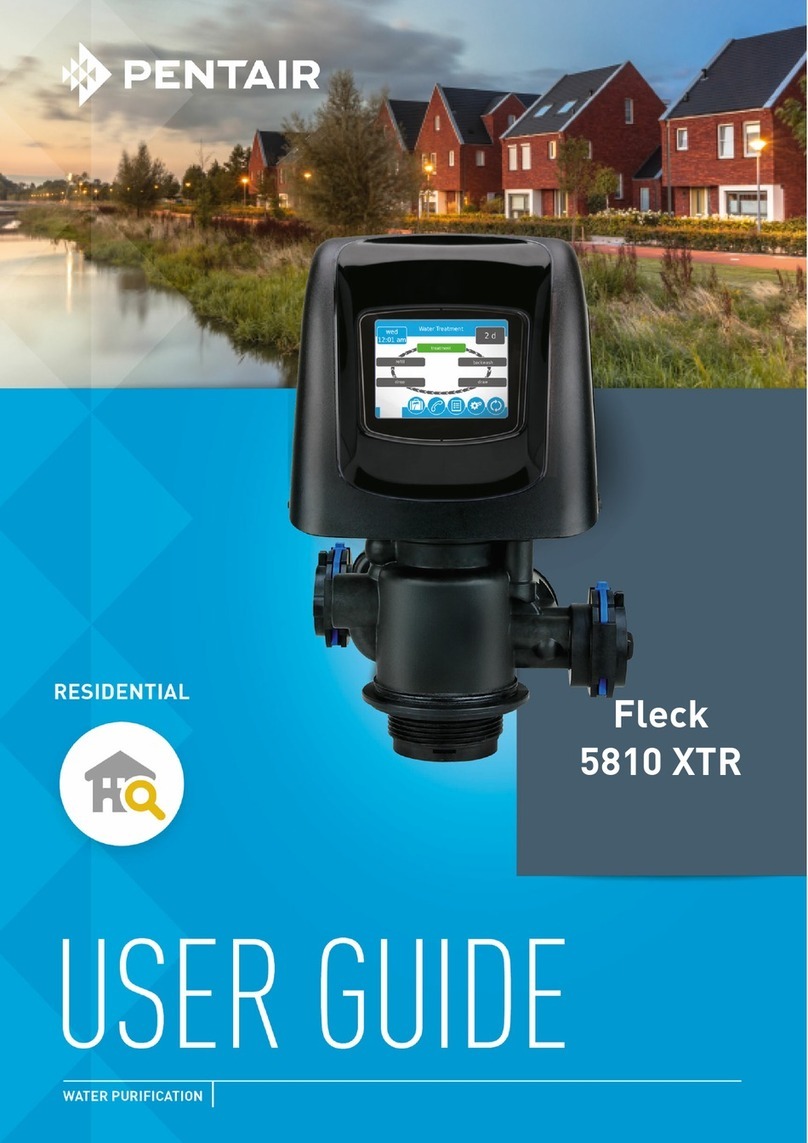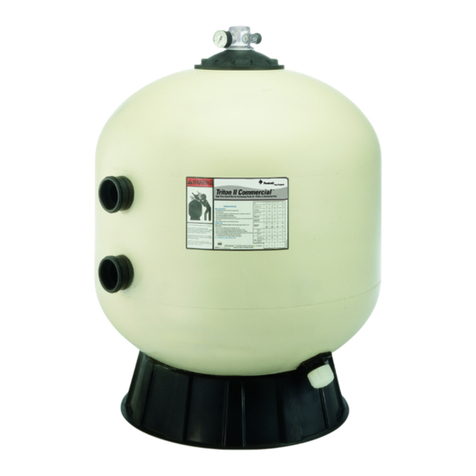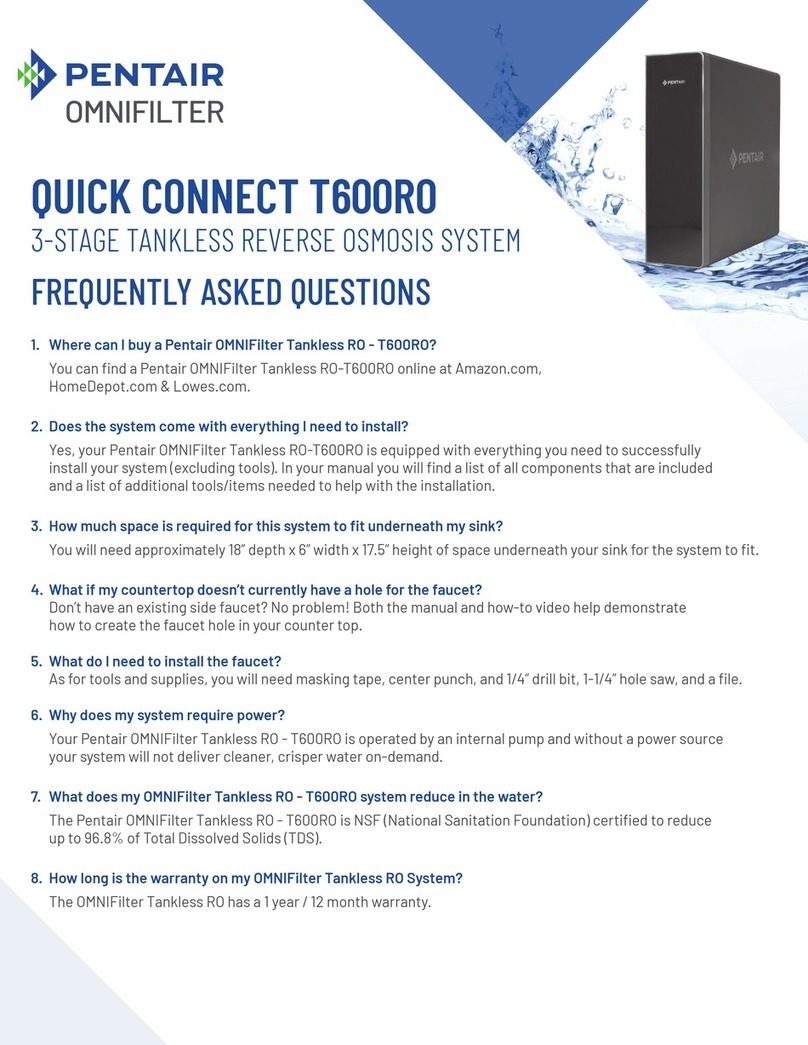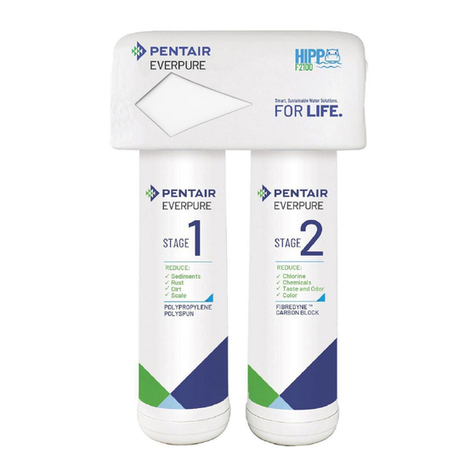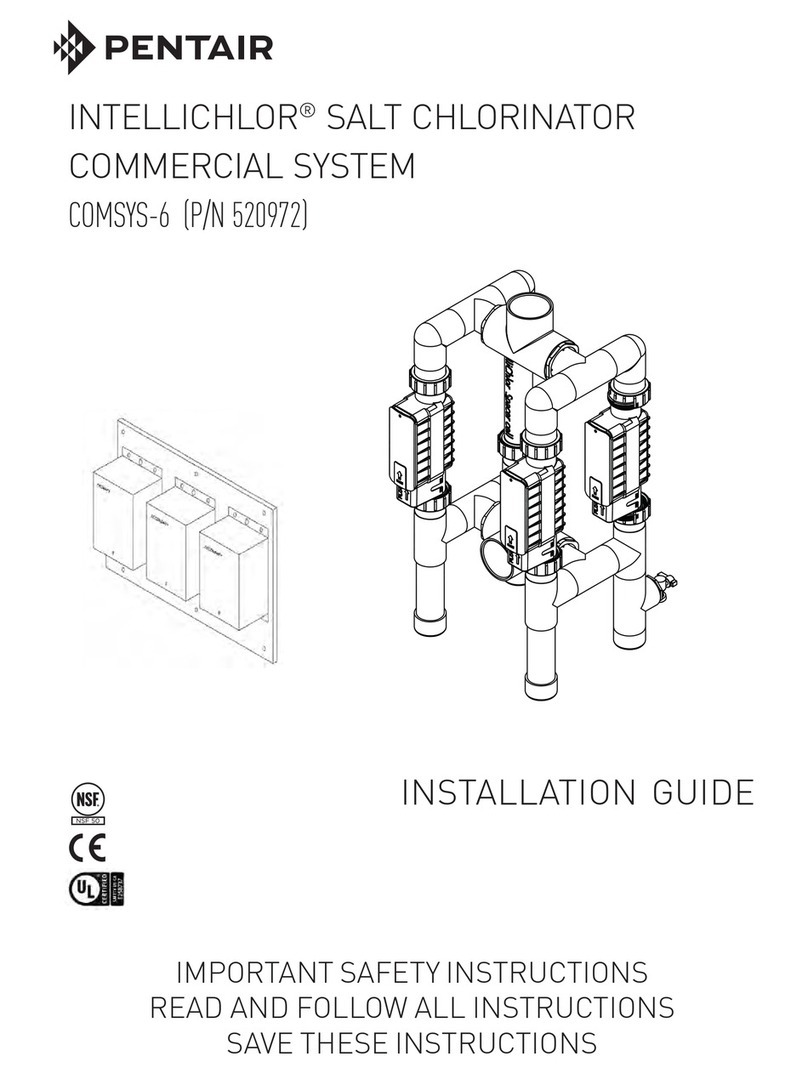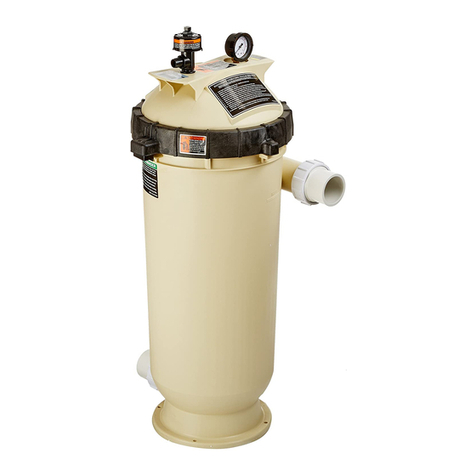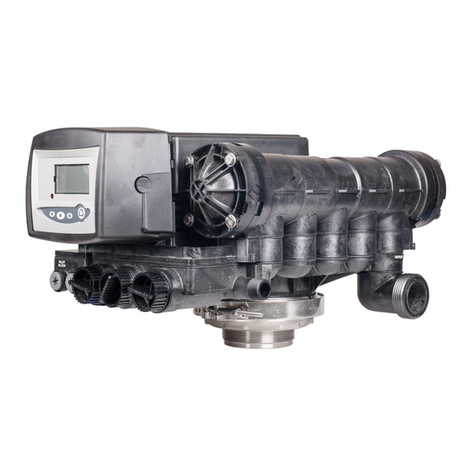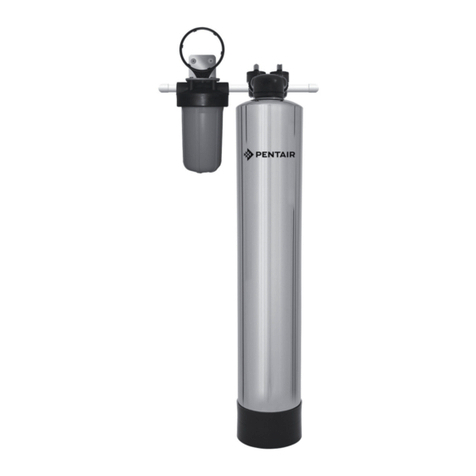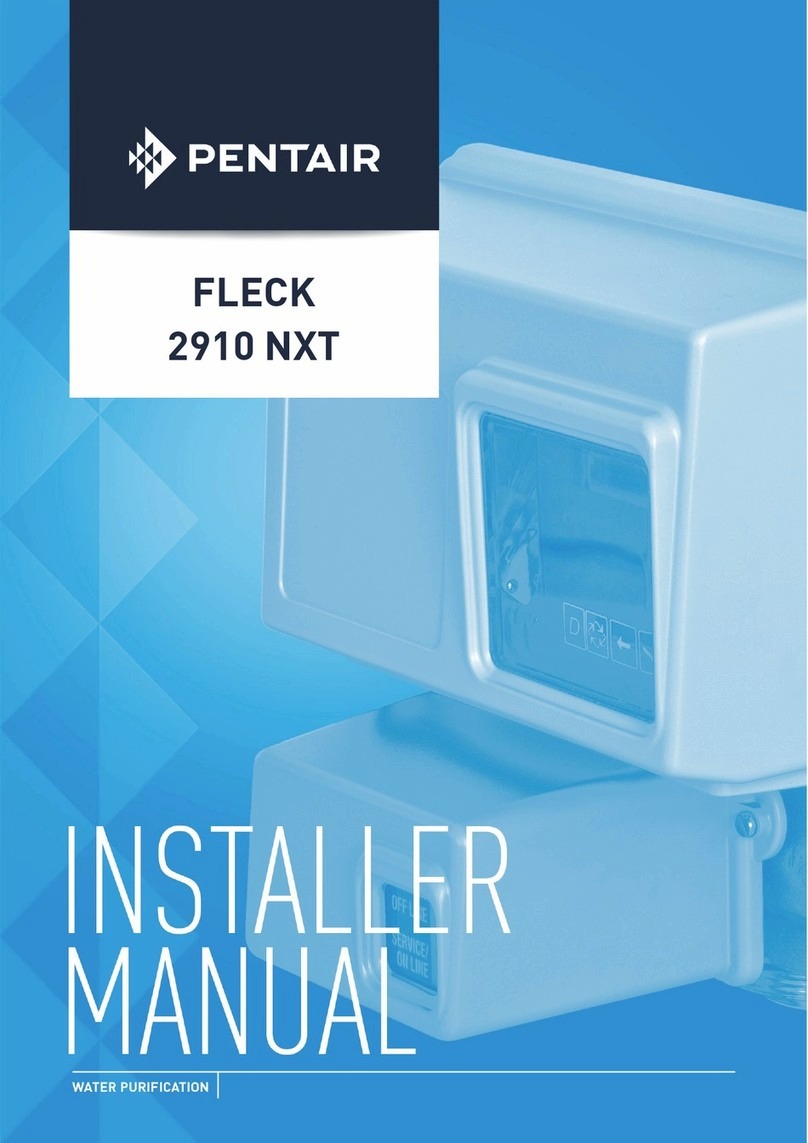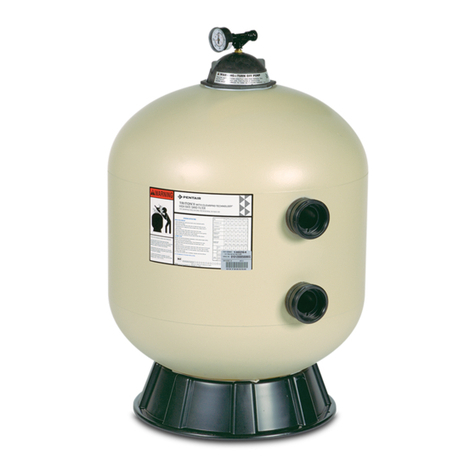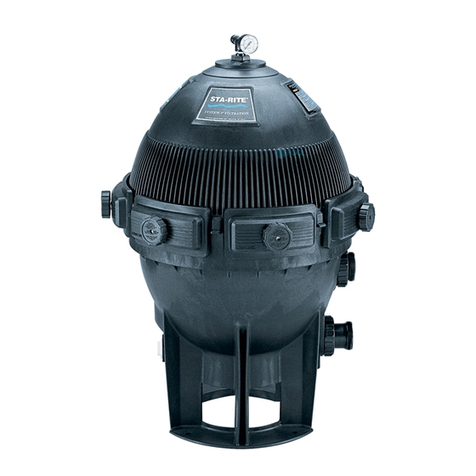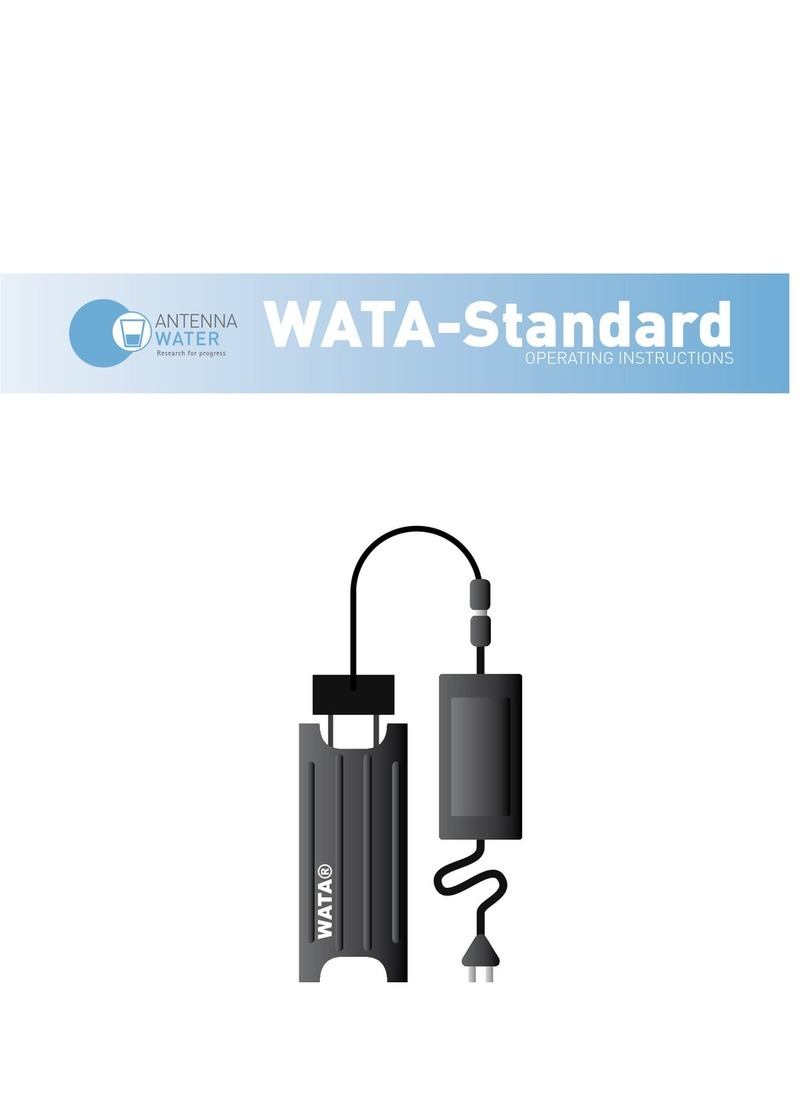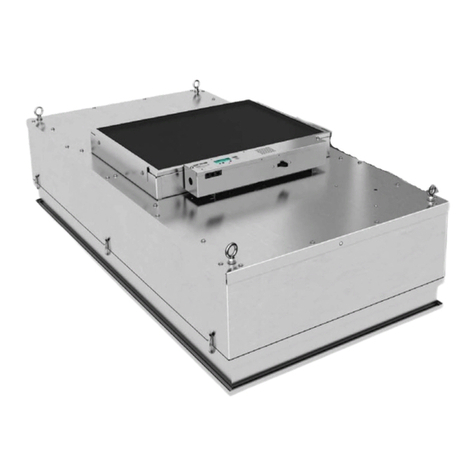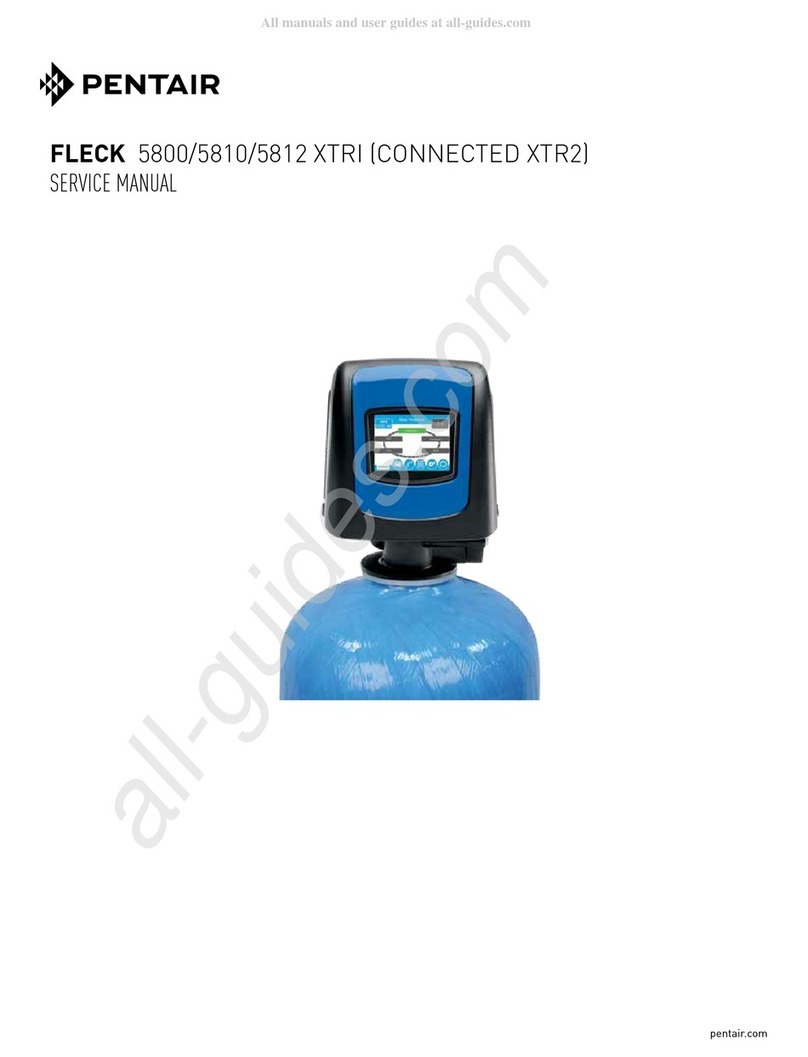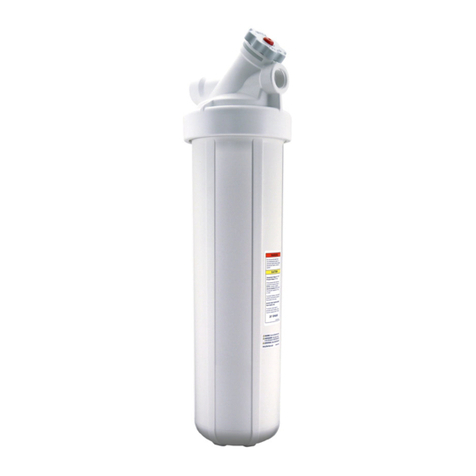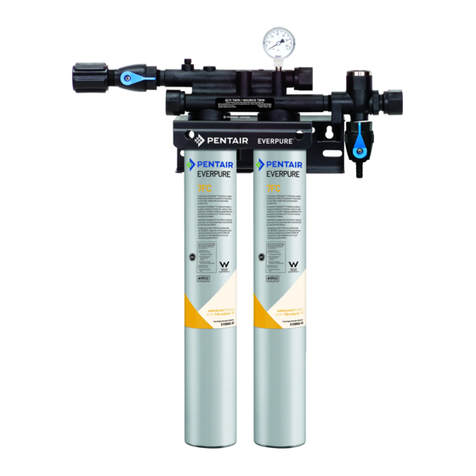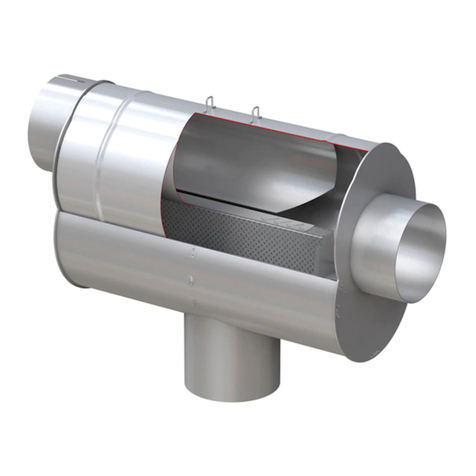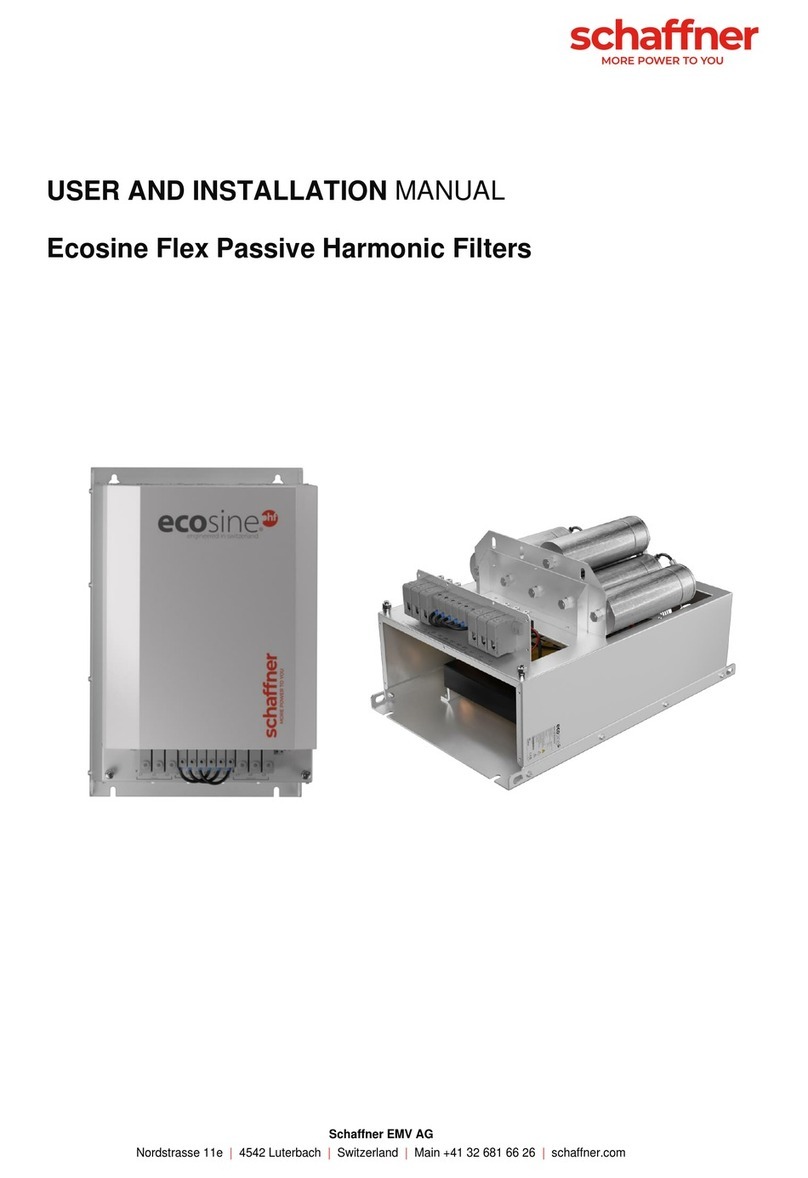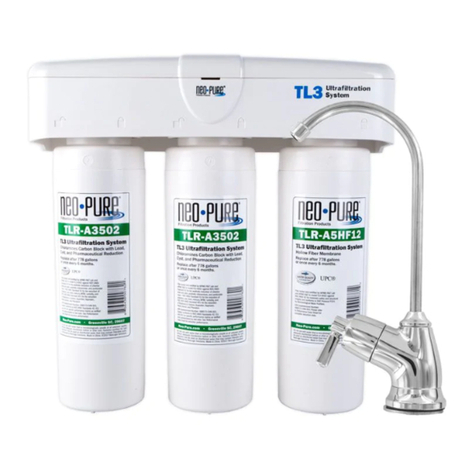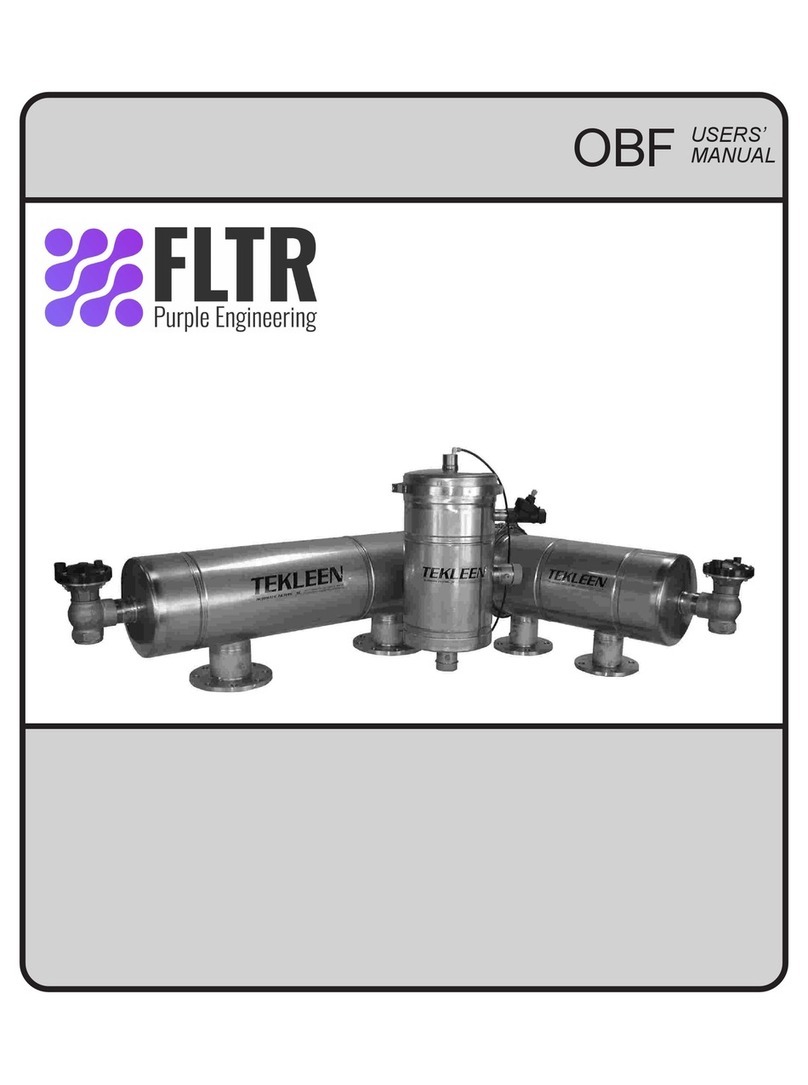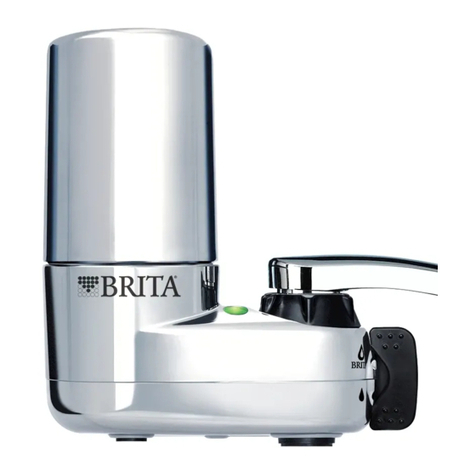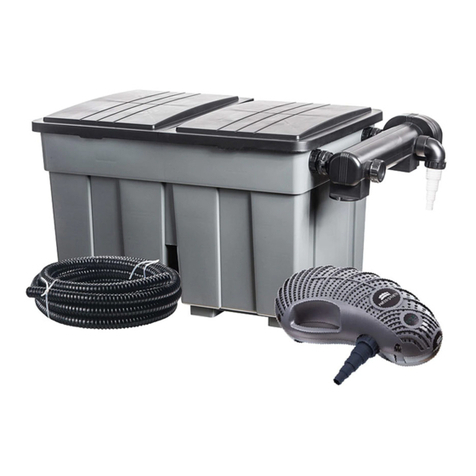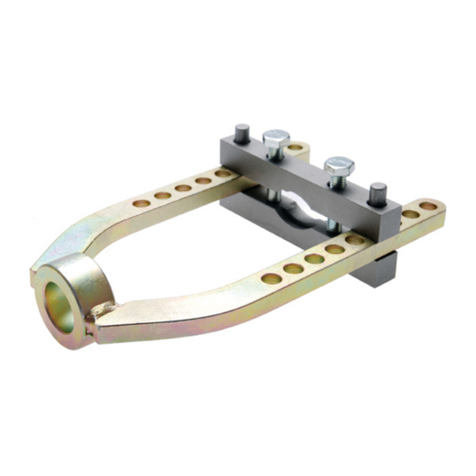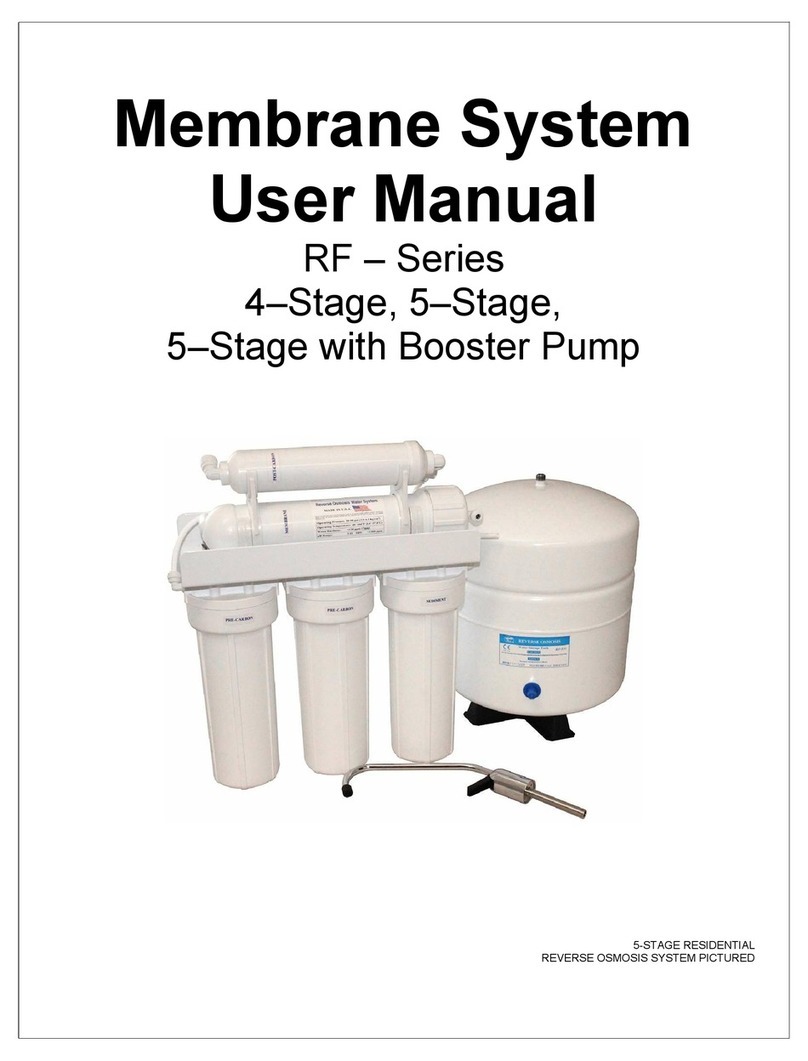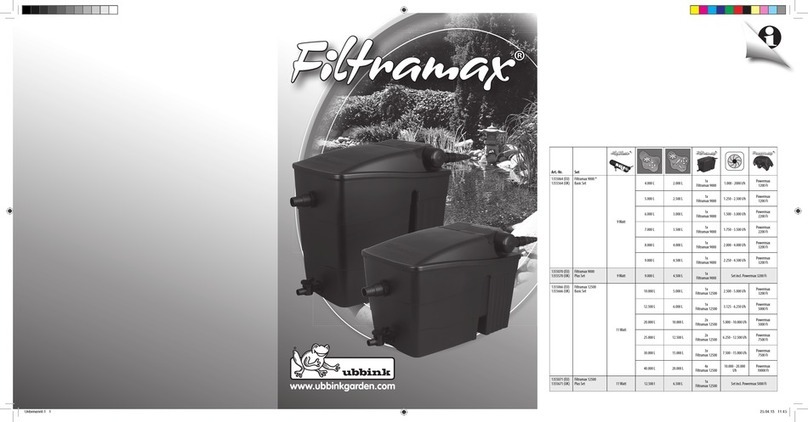
9
English
Secon 2
Pool Water Chemistry, Condions and Precauons
This secon describes the startup procedure and operang instrucons for SC-75 Salt Chlorinator.
Pool Water Chemistry, Condions and Precauons
1. New Pool Water: A recently lled or newly-renished pool may contain undesirable maer. This undesirable maer
could interfere with SC-75’s ability to chlorinate properly. Make sure the water is tested by a pool professional and properly
balanced before switching on the SC-75 Salt Chlorinator.
Salt is an inherently corrosive material. While the levels of salt required for proper operaon of the SC-75
Salt Chlorinator are relavely low when compared to sea water and other salt soluons, placing any amount
of salt in your pool increases the likelihood of corrosion or other deterioraon of pool equipment and any surfaces used in
and around your pool. Metal parts (including steel pools) and certain natural and man-made surfaces are parcularly
suscepble to corrosion and deterioraon when used in and around salt water pools. Pentair Aquac Systems (“Pentair”)
does not represent or otherwise guarantee that the proper use of the SC-75 Salt Chlorinator will prevent corrosion or other
deterioraon of pool equipment and any surfaces used in and around your pool. Consult your experienced pool professional,
who should be able to advise you on the proper material selecon, installaon techniques for those materials, and the proper
use, care and maintenance of those materials for your specic pool type and locaon in order to minimize the corrosion and
deterioraon that is inherent in and around salt water pools.
2. Super Chlorinaon burns out the swimmer waste that has combined with chlorine. This frees the chlorine for sanizing.
This is accomplished by raising the chlorine level quickly and dramacally. When the chlorine level is raised to ten (10) mes
the amount of combined chlorine (usually 5 to 10 ppm) the pool water is said to have been super chlorinated. As pool
water is connuously passed through the SC-75 while the unit is powered on, all pool water inside the SC-75 is being super
chlorinated. When the SC-75 Salt Chlorinator is used on pools, the pool water sparkles and does not burn the eyes because
of the absence of chloramines.
Note: On inial start-up of a pool, it is best to super chlorinate using an outside source, i.e., use a shock treatment
available at your local pool supplier.
3. Chloramines should not be present in pool water. Chloramines are formed when ammonia (which is found in urine and
sweat) combine with free chlorine. This es up the free chlorine in your pool and does not allow the chlorine in your pool to
disinfect. Chloramines also burn the eyes and are foul smelling. Super Chlorinate to remove chloramines at the inial start-up
of the pool and as needed to maintain proper levels of free chlorine.
4. Cyanuric acid is needed in outdoor pools to help to stabilize and maintain proper levels of chlorine. 90% of unstabilized
chlorine is destroyed by the UV radiaon from the sun within two hours. Cyanuric acid stabilizes chlorine in water from UV
degradaon. When using the SC-75, the cyanuric acid level should be maintained between 30-50 ppm. See Table 2.
NOTE: DO NOT USE CYANURIC ACID IN INDOOR POOLS.
5. Total Dissolved Solids (TDS): Adding salt to pool water will raise the TDS level. While this does not adversely aect the
pool water chemistry or clarity, the pool water professional tesng for TDS must be made aware salt has been added to the
SC-75 system. The individual performing the TDS test may then subtract the salinity level to arrive at a TDS level that would
be compable to a TDS reading for a non-salt water pool.
6. Metals - Some metals, i.e. copper and iron, can cause loss of chlorine. Also, metals can stain your pool. Metals can also
damage the SC-75 Salt Chlorinator. Have your local pool professional check for metals and recommend methods of removal.
7. Nitrates and Phosphates can cause extremely high chlorine demands and will deplete chlorine from your swimming
pool. In some cases nitrates may even lower your chlorine levels to zero. Your local pool professional can test for nitrates
and phosphates. While a 0 ppm level of nitrates is the ideal, the pool owner should make sure that nitrates DO NOT exceed
10 ppm. Phosphates should not exceed 125 parts per billion (ppb).

